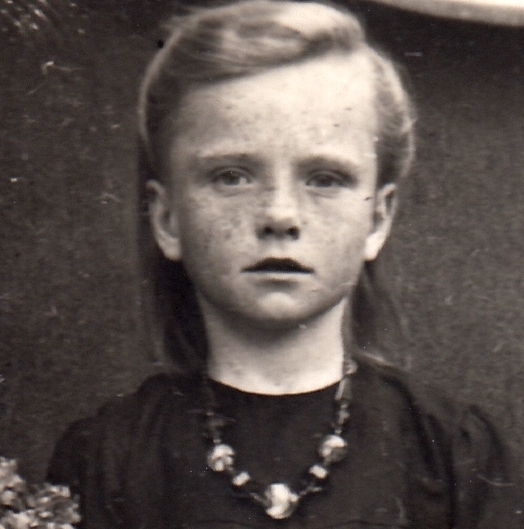We never knew who we were opening the door for.

Stáhnout obrázek
Antonie Kinštová was born on 9 September 1937 in the village of Kliščicha in the territory of Volhynia in the former Poland as an only child to her parents, Karel and Libuše Sitař. The family owned a four-hectare farm and a blacksmith‘s shop where her father ran his business. Antonie Kinštová witnessed the murder of Jews in Volhynia, her uncle was hanged by the Banderites, her mother almost lost her life when crossing the front line and she herself narrowly escaped death during the bombing. Her father fought in the ranks of the 1st Czechoslovak Army Corps. As a scout he went through all the battles from the Dukla Pass to Moravia. Her uncle Josef Sitař lost his leg in a grenade explosion, another uncle Václav Jesínek was killed in September 1944 in the fighting for the Dukla Pass and her uncle Antonín Jesínek died after being wounded on January 1, 1945 near Krajná Polana in Slovakia. In 1947 the family emigrated to Czechoslovakia and settled in the village of Tatenice, where they farmed eight hectares of fields. During collectivisation, after several years of pressure, they joined a unified agricultural cooperative (JZD). In 1956 Antonie married Alexander Kinšt, with whom she lived in Dolní Studénky, where their sons Zdeněk, Jiří and daughter Miluše were born between 1956 and 1960. Alexander Kinšt also came from Volhynia. Several of his relatives perished in Český Malín in Volhynia, where the Nazis murdered 374 innocent Czechs on 13 July 1943. In 1963 Antonie Kinštová joined Moravolen Šumperk, where she eventually stayed until her retirement in 1991. In 1976, the family moved to their newly built house in Nový Malín. At the time of filming in 2024, Antonie Kinštová was living in Šumperk.













